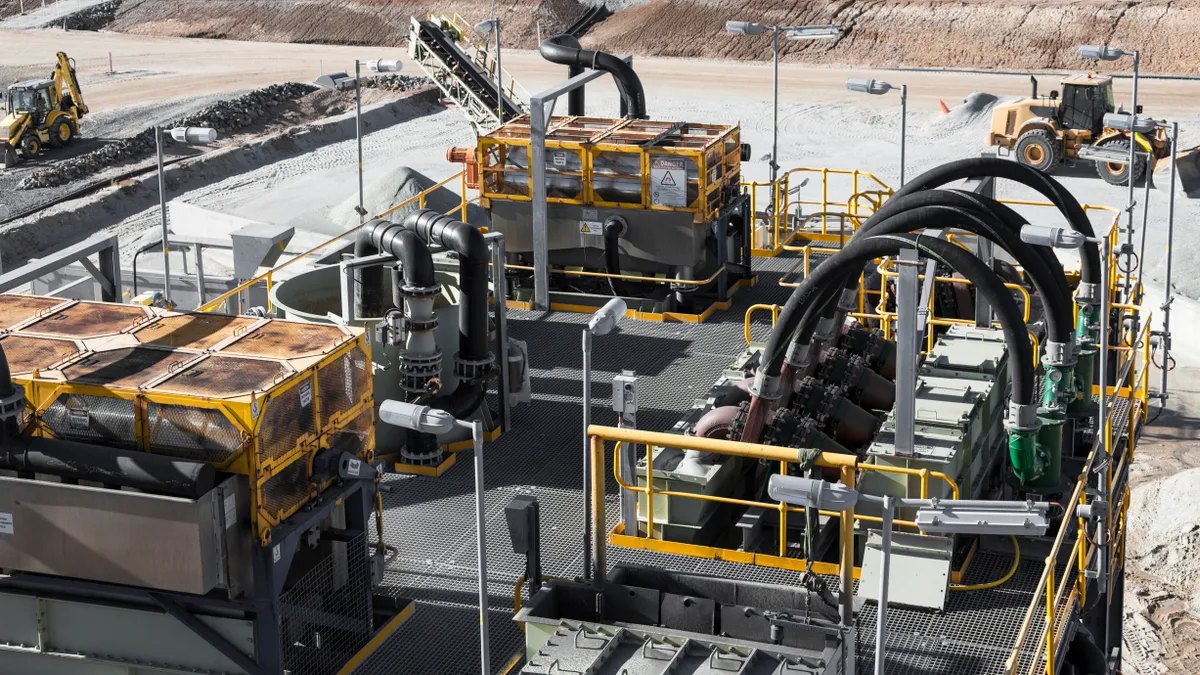Dive Brief:
- The U.S. Department of Energy on Monday announced $192 million in funding to expand battery recycling research and development, calling the investments “essential” to the advancement of a domestic supply chain of critical materials for the energy transition.
- The lithium battery market could grow ten-fold by 2030, driven by growing adoption of electric vehicles and a need for stationary energy storage, the agency said. President Joe Biden has set a goal for half of new vehicle sales to be electric by 2030.
- The recycling funding falls into three buckets: consumer electronics recycling, a new advanced battery R&D consortium, and continuation of a lithium-ion battery recycling prize DOE launched in 2019.
Dive Insight:
EVs made up 7% of light-duty vehicle sales in the U.S. last year and according to DOE, as of April, more than 3.6 million had been sold to U.S. consumers in total.
“More than half of those sold since President Biden took office,” DOE said in a statement. Battery costs have fallen more than 90% since 2008 while energy density has increased rapidly, the agency said.
And grid-connected battery storage capacity in the U.S. increased 52% year-over-year to 10.8 GW by the end of the first quarter, S&P Global said in May.
The U.S. is a leader in the development of advanced battery technologies and the new recycling investments will help ensure the country maintains “a secure and sustainable domestic supply chain,” said Secretary of Energy Jennifer Granholm.
Most of the funding announced this week will go towards the consumer electronics recycling initiative, which was included in the $7 billion to develop a domestic battery supply chain authorized by the bipartisan infrastructure law. The initiative will seek to develop consumer education campaigns to boost participation in recycling programs and to assist states and local governments in establishing or improving existing recycling programs. DOE will also work with retailers in collecting and transporting consumer electronics batteries.
Funding for the consumer electronics initiative will be administered by DOE’s Vehicle Technologies Office and Office of Manufacturing and Energy Supply Chains. Concept papers are due in August and full applications will be due Nov. 29.
The new advanced battery consortium will address “challenges associated with raw materials and critical minerals,” DOE said. “Substantial R&D is required for new or alternative battery chemistries that can achieve lower cost and use more abundant materials.”
The consortium funding will provide up to $60 million to bring together auto manufacturers, education and research institutes, minerals and materials suppliers and other stakeholders “to address critical battery needs for the next phase of wide-scale EV commercialization.”
Consortium applications are due by Sept. 8.
DOE also announced it will continue a battery recycling prize launched four years ago. In that time, DOE has awarded $5.5 million for solutions related to collecting, sorting, storing and transporting discarded batteries. A new “breakthrough” contest will be open to industry entrepreneurs along with a fourth phase of the recycling prize. The two will be funded with $7.4 million.















